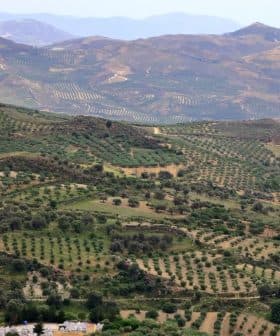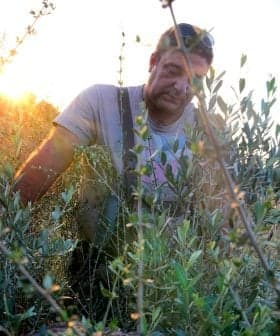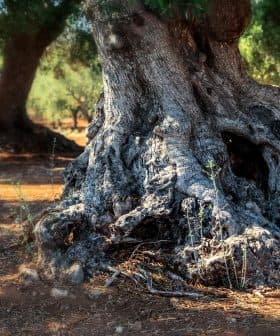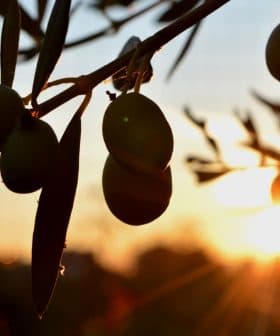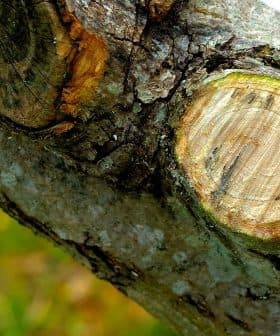Stopping Xylella a 'Top Priority,' Greek Official Says
No manifestation of the disease has been documented in Greece, and the deputy minister of Rural Development said he wants to keep it that way.
The Xylella Fastidiosa bacterium has been causing issues for olive oil growers in Italy and the Mediterranean, but Greece has remained unaffected so far. Vassilis Kokkalis, deputy minister of Rural Development and Food, emphasized the importance of strengthening control mechanisms to prevent the pathogen from entering Greece and discussed measures agreed upon by the EU to contain the bacterium.
The Xylella Fastidiosa bacterium has been haunting olive oil growers in Italy and other areas of the Mediterranean for some years now.
It is crucial that the control mechanisms are properly manned to act proactively and track pathogenic agents before becoming disastrous for our primary sector production.
Greece remains unaffected by the disease and recently, the deputy minister of Rural Development and Food, Vassilis Kokkalis, assessed the case of pathogenic agents in plants and Xylella fastidiosa particularly.
During the seventh Regional Convention for the Reformation of Production that took place in Corfu, Kokkalis first stressed the importance of strengthening the control mechanisms in order to prevent catastrophic agents from crossing the border into Greece.
“In the era of contemporary trade, plants, propagation material, and agricultural products from around the world arrive daily at our border check points. It is crucial that the control mechanisms are properly manned to act proactively and track pathogenic agents before becoming disastrous for our primary sector production,” he said.
Kokkalis then focused on the Xylella bacteria and set the bar high regarding cutting off the agent by stating “Xylella Fastidiosa is an aggressive pathogen found in neighboring Italy with no remedy yet available, causing thousands of olive trees to be cut down. The top priority for the Ministry now is to prevent the pathogen from entering the country.”
No manifestation of the disease has been documented in Greece, despite an announcement made last July on air by Spyros Mamalis, head of the Geotechnical Chamber of Greece, that the bacterium had infected trees in the Peloponnesus region.
Further examination performed by specialized laboratories determined that Xylella was not the culprit for damage caused on the trees and that the announcement was false alarm. A consequent press release by the Ministry of Rural Development confirmed that no bacteria of the Xylella fastidiosa pathogen had been detected and called for caution and proper judgement to prevail.
But apart from Greece, Xylella fastidiosa is a top priority for the European Union as a whole. In a high level meeting that was held in Paris last month, the EU Commissioner for Food Safety and Security Vytenis Andriukaitis and the Ministers of Agriculture from ten European countries considered to be directly threatened by the bacterium (Italy, Spain, Greece, Cyprus, France, Croatia, Malta, Portugal, Germany, and Slovenia) agreed on a road map to apply stricter measures in order to contain it.
The roadmap includes measures like knowledge improvement through the support of research programs, surveillance strengthening for timely detection, and reinforcing awareness and information actions.


